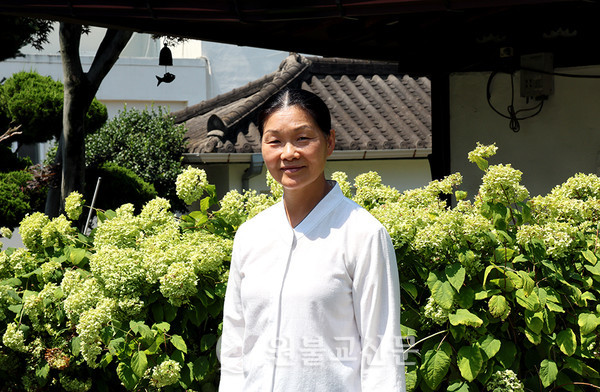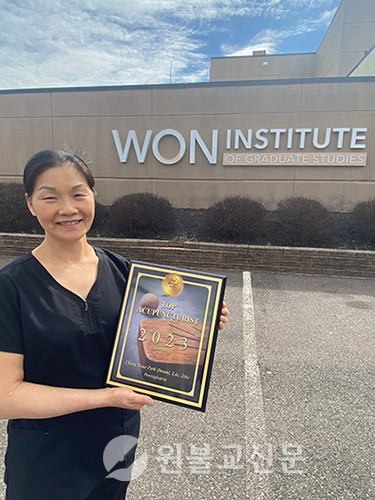They Too Are Quakers:
A Survey of 199 Nontheist Friends
David Rush
Eva Koch Research Fellow at
Woodbrooke Quaker Study Centre
Author's Acknowledgements
Ben Pink Dandelion has been generous of time, ideas, and friendship. I could not have done this work without his support. Doug Gwyn has facilitated all the many details of the fellowship, and, along with Rachael Milling, has helped me to deal with many problems posed by my distant residence. I am inestimably grateful to my wife, Kitty, and to Jackie Leach Scully, Oz Cresson, Gil Johnston and Naomi Rush Olson who each made thorough and helpful comments, to those who founded the Eva Koch fellowship, to the Woodbrooke staff, and to the many friends I have made here, and mostly to the 199 Quakers who have generously shared their stories with me. I dedicate this project to the two of them who have died since participating.
EDITOR'S INTRODUCTION
This pamphlet was published last year in the United Kingdom as Number 11 of The Woodbrooke Journal. With the author's permission and help, it is reprinted here by the Quaker Universalist Fellowship in order to make it more easily available to readers on this side of the Atlantic. As noted in his acknowledgements, Dr. Rush's study, which includes Quakers in both Britain and the United States, was written while the author was an Eva Koch Research Fellow at Woodbrooke Quaker Study Centre in Birmingham. Woodbrooke does not necessarily endorse the conclusions reached.
The British edition was edited by Douglas Gwyn, who notes:
"It is an important piece of fresh research on a growing phenomenon in the liberal branch of Quakerism over the past several years. . . . The opportunity to hear Quaker voices speaking their experiences and convictions adds an important qualitative dimension to the quantitative sifting David has done from his survey. . . . Certainly this essay adds to the path-breaking research of Ben Pink Dandelion (cited by Rush) and hopefully will lead on to future work."
We are grateful to both David Rush and Woodbrooke for the opportunity to present it to QUF readers.
Rhoda R. Gilman
"Jesus said, `If those who lead you say to you, `Look, the kingdom is in the sky', then the birds of the sky will get there first. If they say, `It is in the sea', then the fish will get there first. Rather, the Kingdom is inside of you and it is outside of you." The Gospel of Thomas c.50 C.E.1
"(George Fox) was not…presenting a teaching that people were expected to believe or follow, whether mystical, biblical, or whatever. He was telling them rather to do something, because what they needed to make them free and fulfilled as human beings, `perfect' was in them, and it was in them already without having to imbibe it from a church or teachings outside." Rex Ambler 2
"The things of the spirit now most real for us may be in other areas meditation, work, service for others, sense of community, moral conviction and the like. Undoubtedly between these experiences and traditional dogmas, Christian and Quaker, partial or farfetched parallels may be found. But loyalty to method rather than to results calls us also to fresh formulation in appropriate terms, including psychological, sociological and scientific terms perhaps more than theological ones. Theology is by no means the only possible or useful frame of reference." Henry Joel Cadbury3
"Does this mean, then, that there can never be any basis whatever for any kind of Quaker unity? Surely not. It simply means that we do not need doctrinal unity or faith in a doctrinal Truth. We have outgrown that." David Boulton4
"I have tried to show that Christianity, understood as a broad cultural stream, can and will continue without theism. This is because, in the first place Christianity made a radical departure from pure theism in the early centuries and in the second place in modern times it is taking that radical departure to its logical end, which is the abolition of theism." Lloyd Geering 5
"I am suggesting that we can and should be uninhibited and eclectic in creating new religious meanings, practices, and narratives out of the materials available to us. The poetical theology will fiction and refiction our religion, tell and retell the old stories. What will make it a theology will be its use in helping us to see ourselves and our life with a greater clarity of moral vision, in helping us to be `easy, going' about the transcience of everything, and in showing us how to live ardently." Don Cupitt 6
Introduction
When the notice of the Eva Koch Fellowship came across my computer screen in the summer of 2000, I realized that there was a question that I was strongly called to answer: "What is the religious experience of nontheist Quakers?" I applied for, and was grateful to receive, a fellowship for 2001.
Although I worked in a Quaker summer work camp 46 years ago, my wife's and my real immersion in Quakerism has been at the Friends Meeting at Cambridge, Mass-achusetts for the past 14 years. This has been a wonderfully enriching experience: we have been warmly welcomed in a diverse and stimulating community, have made many precious friendships, and have been led to explore the meanings of our individual and corporate lives in greater depth than ever before.
On the other hand, I was and remain a nontheist, finding that the only tenable position for me is that religion is a human creation. I am a retired medical epidemiologist, and my scientific work has entailed deep skepticism to any dogmatic assertion, those of others, but especially my own. My attitude towards the inapplicability of the supernatural to my pursuing a religious life is part of the same world-view. Thus, I have seriously questioned whether I could ever truly find a comfortable home in any religion which has arisen from western monotheism. Possibly Quakerism would be an exception. The initial impetus for this research was to help explore that question.*
Pink Dandelion7 and Alistair Heron8 have found that, on being questioned, a very large minority among members and attenders in Britain, probably around 30%, will characterize themselves as Agnostic or Atheist, and Dandelion observed that there are many others whose beliefs would not be recognizable by traditional Christians. While I know of no comparable studies of Friends in unprogrammed Meetings in the U.S., there are surely similarities there. (A large-scale study to explore these questions is in the planning stages.9) What these statistics do not tell us are the intimate stories of these Quakers' religious lives. Therefore, this survey aims to explore whether and how these nontheists have been welcomed into, and benefited from, their lives in their Quaker meetings. More explicitly, we shall address the following questions: what was their religious life and identity before arriving at Quakerism, have they found satisfaction and welcome in their Meetings and the RSOF, how do they understand and use religious language, and what changes in Quakerism would they find welcome?
I invited participation in the study during the spring of 2001 by publishing letters in The Friend, in Friends Journal, and in several other periodicals likely to be read by religiously liberal Friends. The letters read, in part, "Several recent surveys have shown that unprogrammed Quaker meetings … in Britain have attracted many members and attenders who might variously be described as Agnostics, Religious Humanists, Non-Realists, Atheists and/or Post-Christians.
These people have in common a religious perspective that depends minimally on a belief in the supernatural. I will be doing a survey which aims to explore whether and how their religious needs have been met within the Society of Friends."
I distributed a questionnaire to those who agreed to participate which had been pretested by about a dozen volunteers on both sides of the Atlantic.10 While I had hoped to get at least 50 completed questionnaires, in fact I received 198, about half from Britain and half from the U.S., with a smattering from other countries (There were 199 re-spondents: one questionnaire was completed by a married couple).
This paper can only report on the Quakers who responded to the survey. This is a volunteer, rather than a representative, sample; therefore these findings cannot be used to generalize about the entire body of liberal Friends.
Results
It was surprising that the respondents were very seasoned Friends (Figure 1). They had been involved with the RSOF — on average — 28 years. All but 35 were members, and of the 35 non-members, 18 had been involved for 10 or more years, and 7 had been members but then resigned. Thus, this was not a transient group of young seekers experimenting with Quakerism.
Figure 1
Average Number of Years in Quakerism (N),
by Country and Gender

There were only minimal differences between the British and American respondents in their demographic char-acteristics, such as age, gender, duration of membership, etc., other than that relatively more of the American Friends live in the suburbs, and relatively more Britons live in small towns, almost certainly reflecting the patterns of population distribution in the two countries.
About one in ten respondents were Quakers at birth or in early childhood. Most others were raised in households
affiliated with mainstream Protestant sects, but there were more than a few whose families were Roman Catholic, Jewish, fundamentalist, or secular. (Figure 2)
Figure 2

Religious lives before Quakerism
Half of all respondents were not affiliated at all with formal religion at the time they were drawn to Quakerism, and most of the others only nominally (Figure 3). They were asked to describe their religious lives prior to their Quaker involvement.
Figure 3

Here are a selection of their responses:
Many had yearned for traditional faith, but had been unable to find it:
"I was aware that many people found strength and comfort from faith in God and, if Christian, in a savior, Jesus Christ. For many years I waited hopefully to experience God, and perhaps Christ, so that I, too, could have the benefits of faith. Gradually, I have come to think that I probably lack whatever sense (a sixth sense) is needed for such an experience."
Most at one time had been immersed in traditional religion, but found that what was asked of them became increasingly untenable:
"I attended regularly and taught the older Sunday school children when I was about 18 years; I wasn't happy doing this as I wasn't sure about the content of what I was teaching. It was at this time that I was questioning the nature of belief, virgin birth, holy spirit and that God was willing to sacrifice his son. I couldn't stand the idea of missionary work/ proselytising… I was also unhappy at the way so-called Christians in the church treated and spoke of their vicar, who was OK as far as I was concerned. They seemed so unchristian. …. Whilst married I did not practice any religion but increasingly felt the need to engage in expressing my spirituality in some way. I was about 32 years old and for some reason was very drawn to the meetinghouse where we lived… The feeling of `beckoning' was so strong that I went to Meeting for Worship, and as the cliché goes, knew that I had come home."
"Episcopalian from age 0 to age 50. I was Senior Warden, sang in choir, taught, and went regularly. (My husband and I) left together and attended (X) Meeting. … Our search for the "truth" led us to Quakerism. We feel there is so much freedom for personal religion/beliefs with the Quakers than with many other churches/faiths we explored."
"I began going to the Episcopalian Church… I found friendliness and warmth but I could not reconcile myself to the dogma, the ritual, and the lack of spiritual introspection, questioning and experiment. At the same time I was learning about Quakers. I eventually decided that Quakers offered the only viable way forward."
"I was very religious as a child. My family went every week - both parents are ordained ministers. I majored in religion and got a Masters of Divinity and then I stopped attending church at all for about 5 years until I started going to Meeting."
"I was raised very strict Methodist and found that I simply couldn't believe it. I floundered around a while, was a `nothing' for quite a few years, walked amongst Unitarian/Universalists for a while until I finally found my `home'."
A few had been deeply scarred by traditional religion:
"13 years as great niece of the founding Anglican priest in a small town church in (X); current priest attempted to molest me; 37 years as an angry atheist, 11 of which I was married to an angry atheist Unitarian Universalist minister… 10 years active in peace movement, thus consorted with more and more Quakers and began, simultaneously to yearn for something `spiritual'."
"Twenty years of being a Lutheran preacher's kid gave me a cycle of depression that started Thursday night, deepened into anger by the end of Sunday's 5th sermon and dissipated into normalcy by Wed. noon…I avoided churches like the plague and raised my son unchurched on the grounds that their destructiveness outweighed their benefits. In '72 my husband demanded I accompany him to a Lutheran service and heard a sermon on boycotting UNICEF (because) `the sooner those communist kids die, the better for our boys.' I was reduced to a speechless, tearful rage and didn't set foot in a church until I landed on the doorstep of the (X) Meeting…. I found (X) Friends in the phone book and went. …The library and adult ed. readings at (X) Friends have been unusual in their honesty. The comments of members have helped melt away a lot of the leftover garbage of my childhood."
There were respondents for whom traditional religion did not speak to their needs:
"Brought up in orthodox Jewish educational system but had problems with belief/identity feeling that there are things foisted on us by social/ institutional interests."
"Very active evangelical, first in Brethren, then in wider evangelical movement, till in 20s. Thereafter, no religious life till becoming interested in Quakerism in early 1980s."
Many explored Eastern religion or other nontraditional spiritual paths on their journey to Quakerism.
"Mainly `High' Anglican to age (about) 21: then increasingly in non-Christian and non-religious philosophies; attended a Sikh Gurdwara for (about) 5 yrs, otherwise my `religious' life was outside any organized religion until I felt `drawn' to Friends at (about) age 40."
"Childhood: pious R.C. (Roman Catholic), studied for priesthood in two schools. Young adulthood: Buddhist, practiced meditation regularly; non-theistic; discovered Quakerism, attended worship for about two years. In my thirties, tried Christianity again for a couple of years. Back to Quakerism and Buddhism in late thirties. Now practice meditation with another Quaker weekly and attend Meeting for Worship on most first-days."
"Years of membership of different meditation and spirituality groups followed and about 15 years ago I attended my first Quaker Meeting. For many years I searched for a philosophy of life that could satisfy my longing to know the truth behind the mystery of life. …Quakerism with its lack of dogma and creed gives me the freedom I need. I no longer expect to find the truth but feel that somehow it is in the search itself… God for me is now just a metaphor for the big mystery of life."
Personal tragedy was often involved in looking for a path other than traditional theistic religion:
"My religious life is still in despair about my family destroyed in the Holocaust. I feel emptiness no religious life. I respect Quakers because of their creed of non-violence."
"After a series of losses…I began actively searching out a site for religious practice, as I tried to figure out `the meaning' of loss/suffering/life, etc…I found the conventional churches, with their creeds, untenable (I could not say the Apostles' Creed, because I did not believe those things). But I found the Quakers marvelous—no sermons, time to reflect, multiple thoughtful messages, an openness… I felt I had come home, a site for searching, without the dogma."
Some of the respondents stressed less the alienation they experienced in the past, than the exhilaration they could find in Quakerism:
"In Quaker Universalism I find the freedom for my mind to roam, explore, and seek… For me the defining is not nearly so important as the seeking. Who is to say what or who God is? Yet how can we not try?"
From reading through each questionnaire, I judged that about a quarter of the respondents had a strong religious faith and/or belief in God at some time in their adult lives before they became Quakers (the sample included several ex-clergymen) (Figure 4). The rest had never as adults felt much in the way of deep faith or belief in God before they became Quakers.
Figure 4

Participation in Quaker Life
Almost all the respondents participate intensively in Quakerism. For the most part they worship every week (Figure 5), attend business meeting every month (Figure 6), and serve on and have been clerks of many committees in their local, Quarterly, and Yearly Meetings (Figure 7). Thus, they are deeply involved in Quakerism, as well as long-time participants.
Figure 5

Figure 6

Figure 7

Religious Beliefs
Figure 8 presents the ways in which some of the respondents categorized their current religious beliefs. Two thirds identified with one of the explicitly non-theist categories offered (Figure 9). The others ticked "Universalist" only, or preferred not to categorize themselves.
Figure 8

Figure 9

Almost all the respondents felt deeply enriched by, and concerned for, their Meetings and the RSOF, even if there was occasional ambivalence or outright displeasure. One reported "The decision-making methods are the most truly a participative democracy of any I've ever seen. Quaker process WORKS and is tried and true for centuries now. The unstructured silent worship is sometimes inspiring, always centering and calming… There is room for me in the Society. I am accepted, listened to, appreciated outside my own Meeting. My confidence in discerning and then speaking insights from my own experience has matured me and benefited me personally and professionally. Right now, only the dilution of rigidified (unQuakerly) behaviors found in my own meeting in the wider Quaker world keeps me in. I need the weekly community, even if it frustrates and upsets me."
Religious language
I asked each person how he or she understood and used the following terms: "God," "The Spirit," "the inner light," "that of God in every person," "the kingdom of God," "Jesus," "Christ," "the divine," "the sacred," "holy," "faith," and "prayer." (If I were to repeat this survey I would drop several terms that proved to be redundant, but include "worship", "leading", and "the gathered meeting", which might be helpful in understanding different theological perspectives among Quakers.)
Figure 10 presents the frequency of ways of under-standing the word "God". I found most responses to be deeply thoughtful.
A large number of respondents (~53) thought of God as, in one sense or another, Spirit, with a description that often includes vital energy or creative force.
"The sacred source indwelling all that is, both transcendent (and so unknowable) and immanent (of experience)."
Figure 10 
"The more one defines, the more one gets it wrong… The transcendent mystery that illumines the inner person with altruism, love and beauty."
"In my view `God' is a metaphor people use to express their belief that the world is powerful. This `power' includes us being powerful and hence the spirit in you is shared by me and potentially by all humans."
"I'm agnostic about the reality of `That'. Naturally I find anthropomorphic metaphors unhelpful — Father, Mother, etc, even quasi-human qualities like love, mercy — and prefer maximally abstract terms: the One, Truth (Sat), or wholly negative ones like Emptiness (Sunyata). Having said that, I think I'm fluent enough in `God-language' to be able to hear and understand it when it's used by Friends in ministry, in terms meaningful to me, without needing to translate it consciously, like someone reasonably at home in a foreign language."
"The power that initiated the universe and has maintained the evolutionary stream. The Bible has it wrong. Man made God in his own image. For me God is the integrating force in the universe keeping atoms and planets and stars and galaxies in their orbits. When we use such expressions as `it is in God's hands'… I recognize that, in so far as God is in us, we are God's hands."
"I avoid using the word because in the orthodox Christian faith `God' is described in anthro-pomorphic terms — as human, male, father. I prefer Gandhi's word `Presence'."
ring about an omnipotent, omniscient, creator of the universe, including mankind, and often, a being who loves and cares for humans. God is usually spoken of as a Father-God but sometimes as a Mother-Goddess. I usually hear of a Higher Power, above and beyond humans, sometimes as permeating the universe, including humans, and from Quakers I hear of a God within us. Because I have not experienced these or other concepts of God, these meanings are abstract, not real, to me."
"To me, the term `god' by itself, refers to the Abrahamic/patriarchal understanding of the Divine, and I don't use it all. As a Wiccan, I understand `the god' as the equal polarity to the Goddess, although I do not see either as `deities' but rather as representing the necessary polarity within the Divine, as feminine-like and masculine-like principles/archetypes."
"This has become a lazy shorthand for the divine and is profoundly offensive to feminists, non-theists, etc. I spend a lot of time translating all these words in my head and for the most part am not too bothered. This 3-letter word starting with G is the worst. Those who use multiple-choice like `God or the Light, or Great Spirit' are at least trying, but are long-winded and foolish-sounding. `The Light' would cover most people's personal meanings and so would `The Muse' but both are names, and I feel uncomfortable with the arrogant limiting of something too huge to box in by any name. I'm stymied."
About 46 Friends understood "God" as "Good", or saw God as standing for humane values, whether ethical, spiritual, or both. A few statements follow:
"A symbol for the sum of our spiritual values. Could be replaced by Good."
"The spirit of good which exists in all men."
"Love is God."
"God is Good. I don't have a concept of a person, but I find `God' a convenient way of expressing my experience of awe and wonder at the universe in which I live, and a sense of the source of strength when facing personal problems… Worship is a useful concept if translated as `Worthship'."
There were 44 respondents who essentially rejected the use of "God language," but could generally translate it when used by others. A few of their responses are:
"Find the God-concept to be unhelpful in understanding the world or in managing my affairs."
"I do not believe `God is in charge' and unless I am quoting I do not use the word myself now but I respect others' wish to do so."
"Avoid it on principle: no one knows what it means."
"A mythical deity, a pagan tribal `God'."
"I cringe inwardly."
"I accept what `God' seems to mean to the speaker; use it myself only in concepts such as `will of God' and `that of God'."
"I believe this to be a term which has meaning to other people but not to me. I try to understand what is being implied by it, and (to be) sympathetic to the speaker but I do not expect it to have any resonance with my personal experience." "An `All Powerful, All Loving entity'…. Sadly I now take the view that God is no more than a bit of wishful thinking."
"Currently, my attempt is to restrict my personal usage to god as an adjective: `godly'….Though I sometimes use the term in discussion so as to sustain continuity with the person I'm talking with."
"Nearly all the … terms are not in my active vocabulary, so they do not arise in my vocal ministry nor in conversations with others. When I hear or read them from others, I try to determine from context and my knowledge (if any) of the source what they mean to the speaker or writer, and make appropriate adjustments."
"People use this when they mean something important or want to convey strong feelings. `God Bless' is `I wish you the very, very, very best'."
"This is a dead metaphor to me. It has no meaning. I try to listen very hard to the context in which it is used. If someone were to say `God is commanding us to house the homeless' I would understand them to be saying that it is of the utmost importance to house the homeless. If someone were to say `my relationship with God is the most important thing in my life', I would be pretty stumped. I try to just be with it rather than to force an understanding."
I felt that 10 of the responses were best classified as pantheist, in which God is understood as the totality of everything. Here are two of them:
"I usually avoid use of the term because of its diverse meanings; hence my auditors can be easily misled. The best sense of God, I think, is the entirety of existence, of which you and I are a part. I think the concept of duality: God and the Material World, or Spiritual and Physical, is a mistaken one."
"When God is mentioned as `he' and/or when patriarchal, hierarchical, submissive words are used (e.g., Kingdom of God, Do the will of God) I get a real turnoff, and can't relate AT ALL. God to me is personal and female (I'm aware this is just my vision; but it works for me). I do experience a real feeling of the presence of the divine. My belief is that we are all literally part of that divine, so that in at least one sense, we are all divine, sharing God's divineness and can tune in to that divineness if we would only REMEMBER to do so (mind-fulness!!!)."
I categorized 15 of the responses as basically semantic: that "God" as a term is inadequate or insufficient or inaccurate. Here are some of them:
"It has too many meanings to be useful."
"They mean little or nothing to me because they have a multitude of different meanings, the exact are really defined by the user." "Nothing at all because people attach individual idiosyncratic associations to all words and images, giving them meanings peculiar to their own ideologies, albeit ideologies influenced by the cultures of communities they encounter… I believe Quakerism points to beyond words and their meanings, and that Quaker practice dismantles ideologies of all sorts forever (Amen!)."
"These are all finite words that can mean such different aspects of the infinite. I try to get beyond them to the experience we are trying to share with an author or in conversation or in Meeting. Rufus Jones was wonderfully skilled in being able to use any of these terms in the context of things, people and events rather than in expectation of agreement or some abstract `definition'."
Thus, under the general rubric of "nontheism", there are many different understandings of the divine. When asked directly how they understand the term "divine", the largest number (about 49) don't use the term, 36 referred to goodness, mercy, or some other quality that implied inwardness, 31 referred to all, or all of life, and only 15 implied something external to themselves: God, spiritual reality, etc. Interestingly, many more (51) see the word "sacred" encompassing all, or all of life, than the word "divine". However, 49 respondents said they avoided this term as well. There were a smattering of other responses for both terms ("useful", "a mystery", "beyond words", or they gave a definition of the term without implying what it meant to them).
Figure 11

Essentially none of these Quakers thought of Jesus as other than a human being (Figure 11). On the other hand, a large majority gave him quite special status, such as a Jewish prophet, wise man, teacher, or rabbi. A largish minority (37) said they avoid reference to Jesus, or do not find Jesus to be useful or to have special significance. One respondent of Jewish origin recalled Jesus as the justification for childhood harassment. The answers to how "Christ" was understood were more varied (Figure 12). A large number of respondents (67) avoid using the term, or gave a reply with negative connotations. Many find the term useful, and some equate it with traditional Quaker terms such as "Inward Christ", or the "Inward Light".
The Spirit, and the Inner Light
Figure 12

Only ten respondents thought of the spirit, and five the inner light, as equivalent to God. By far the largest group thought of both terms as good, mind, reason, conscience, aspiration, or some other inward feeling or characteristic; many, but fewer, mentioned power, mystery, source, universal mind, or something else that implied something external to the respondent.
Prayer
One of the most frequent questions directed towards nontheistic Friends concerns what is their experience in meeting for worship. The questionnaire asked what prayer means to them. Eighteen people left the question blank.
One large group (26% of women but only 13% of men) gave responses that might be described as meditation, or attentiveness (n=~38). Here are some examples:
"Meditation, trying to open oneself to the spirit of the universe."
"Meditation, `holding the light'. Thinking lovingly of others and of situations." "I don't pray, although a couple of times in my life I have had powerful moments when praying seemed the most important thing to do. I don't know what or if I was praying to some*thing* nor do I know what I expected to happen. Somehow the conscious act of speaking/ thinking/ concentrating my needs/ wishes was very powerful, spiritual…but I'm not a praying person…"
"Prayer is attentiveness (following Simone Weil), an attentiveness that focuses us on the task of bringing the Kingdom of Heaven into being on this earth."
"Meditative reflection? Buddhist attitude of goodwill towards self; family; friends; neighbors; community; country; the world equals holding people in the light."
Another large group of responses (21 % of women and 14% of men) described help in transcending the limitations of self, getting in touch with some thing universal, being in the light, descriptions of something or experience that might be described as spiritual (without necessarily the implication of a supernatural presence) (n=~34).
"Holding other people and situations and, if appropriate, oneself, in a spiritual dimension."
"Communion with truth, love, beauty and ultimate unselfishness."
"Dwelling in the light, meditating, surrounding with love, unconditionally." "A way of life and a way of talking to your inner self. Conversation with oneself/ God calling on that of God within you and hearing that of God in others, in beauty, in nature. It is ongoing."
"Holding oneself in the light, in readiness, silent, non-petitionary. Evil weakened and the good raised up."
Another set of responses suggested that prayer was a strategy or activity that helped the person to be a better person, to change behavior, or was a way to express love in action. (n=15)
"Sincere desire for goodness for oneself or others, with earnest contemplation of whether or not one can be helpful."
"Prayer is seeking inwardly to find what love and truth require of me in a particular situation or at a particular time, and to muster the strength and determination to respond."
"I regard prayer as a completely rational activity. It is an expression of caring and commitment, which brings us into relationship with, for example, people who are suffering or rejoicing."
"Focusing the mind on matters of concern in public or private realm and on sources of inspiration such as God or Christ or what may be found among human beings, art, literature, etc. The object of prayers is empowerment for the good."
"When I was a kid, I could never understand why I should pray. If God knows everything, then why do I have to form my thoughts into words since God would know my thoughts? But now I understand that prayer is not about talking to God, but about forming those thoughts that are the highest to you into words, putting them closer to action, ingraining them more into your mind."
Another group uses prayer as help in times of trouble, without much of a sense that there is an object to their prayers. (n=15)
"I still wonder about this - but when things REALLY get rough, I find I resort to it."
"Can be helpful, but not by divine inter-vention."
"What I used when I thought there was a god who heard me, and what I still do although I know I am talking to myself."
There were a few respondents whose responses I characterized as traditional, more or less. (n= 13)
"Petition and/or praise to God."
"A conversation with God, the inner light, and within myself. Cognitive dialogue."
"Our attempt to put ourselves in harmony with divine purpose and allow that power to work in our life. I am convinced that prayer has an effect… At any rate I hold in my thoughts persons I care about and for lack of other words I resort to the ones I learned at my mother's knee and ask for gods blessing on them."
"Attention to spiritual ground of being."
"A means of focusing one's attention (and will) on being `in resonance' with the Divine (whether for the purpose of influencing mundane reality petition prayer, etc. or not). In true Wicca (as a spirituality, rather than occult technique), what is called `spells' or `energy working' is basically the same as `prayer'."
A few responses were neutral, or descriptive. They did not say much about the respondent's personal attitude to or use of prayer. (n=8)
"An attempt to communicate with a posited `other'."
"We need a new definition of prayer based on a new idea of what IS."
"How some people reacquire faith."
The largest group, albeit only about 20 percent overall (Only 13% of women, but 31% of men, a rate two and half times as high), gave fairly negative responses. (n=40) Here are some:
"One-way communication with a square circle."
"'Worship' or `prayer' seems to mean a dialogue with this mythical God for the purpose of praise, or more commonly, supplication for miraculous intervention in human affairs…I therefore find the nonprogrammed Quaker use of the word "worship" misleading for our practice. Opening to the Inner Light requires no attitude of worship or prayer for it to bring us joy and understanding."
"A harmless activity, which can bring great comfort to those who believe in its efficacy. I don't!"
"Usually selfish, if well intentioned; as a Buddhist I do not practice it, but recognize its worth for others."
"I have yet to figure out what people are doing when they pray. Some are asking for favors, but others use the word to describe something else I haven't yet fathomed."
"Offensive. Tainted with groveling, whining, demanding extra services from some big parent in the sky."
Thus, it seems that the great majority of these nontheistic Friends, particularly the women respondents, understand prayer in meditative or spiritual ways, ways that are probably valuable to them in leading their lives and being more open and generous to others and to the world, albeit with no external object for their prayer. It would be important to probe further on the meaning of worship, especially for those who reject prayer. As with all the other questions, these responses are generally deeply thoughtful and considered. They have a quality that seems very "Quakerly".
Comfort with and Welcome in Meeting
While almost all survey participants felt they were welcomed as persons (Figure 13), about 30% responded positively to the question " Have you felt uncomfortable or out of place in then meeting because of your beliefs?" (Figure 14). This rather high rate led me to explore this issue in further depth.*
Figure 13

Figure 14

The rate of discomfort was lowest in U.S. males (17.5% vs. 29% or higher in the other three groups). There was some variability by yearly meeting. The rate in Britain Yearly Meeting was 28.9%, and there were striking differences among the four Northeastern Yearly Meetings from which most US respondents were drawn: 12.9% combining Philadelphia, Baltimore, and New York Yearly Meetings, vs. 40% in New England Yearly Meeting. There were only 11 respondents from other than the U.S. and Britain, and five of them expressed discomfort, a very high rate of 45.4%. Not surprisingly, 16 of 30 (53.3%) of respondents who felt alone or almost alone in their meetings concerning their beliefs also felt discomfort, vs. only two of 34 (5.9%) who felt they were not in the minority. Comparing rate of discomfort among the various categories of belief, it was surprising that by far the lowest rate of discomfort (3/24; 12.5%) was among those who characterized themselves as atheists.
Figure 15

Figure 16

About 40% of those who did feel uncomfortable because of their beliefs, when asked what they would like to see changed in Quakerism, spontaneously specified greater explicit acceptance and recognition of non-theism in the RSOF (Figure 16). Among those who did not report discomfort, the rate of wanting to be formally recognized and accepted was only about 20%.
Desired changes in RSOF and/or in Meeting
The following are some responses to questions asking whether there were aspects of their meetings or of the RSOF that they would like to see changed. Here are some of their responses:
Some are very personal, and wish for greater and more open welcome in the RSOF:
"I'd like to feel there is room for me."
"I would like YM to move towards more explicit understanding and acceptance of non-theism."
"It feels very sad when I think about it, and still rather hopeless as long as the few funda-mentalists want to run things. Recently, the two who had opposed my membership so strongly found a loophole in business meeting to abolish Ministry & Oversight Committee and replace it with them as pastoral counselors. There was much resentment when this came out in the newsletter and now there is nothing like Ministry & Oversight at all."
"Not because of my beliefs but because I am a Lesbian and not all meetings accept homo-sexuality."
"I am disturbed by what strike me as hateful, intolerant statements by anti-universalist members in Quaker fora such as e-mail lists and letters to editors of Quaker publications, and frustrated by our inability to deal with them. I pray for integration of spirit around the issue of sexist language. I question whether it is really fair or true to God's Spirit of peace and understanding to say, `This is the language I am comfortable with, it's my free choice' in a communal context, considering the well-known dominant linguistic effect to exclude."
"Look to the day I can speak openly even during meeting without offending. Will ask for a minute of support for outreach to secularists someday."
"A widespread recognition that people who do not believe in God can have rich religious lives that can contribute much to the RSOF."
Some I would call linguistic or theological:
"Language that is not supernatural."
"Revision of Quaker traditional language and consistent acknowledgement of diversity among Quakers, especially regarding those of us who do not believe in the supernatural."
"More openness to non-theism, especially since some Friends have been led to feel that a return to Christianity will make all the difference in reviving Quakerism."
"Recognition of post-God spirituality."
"We do not live in George Fox's world, we cannot go back to it, the Society of Friends must acknowledge this and press on to find a modern religion that does not need the supernatural."
Several Friends were deeply concerned about Britain Yearly Meeting's full membership in the Council of Churches of Britain and Ireland*:
"A recognition by BYM that acceptance of full (rather than associate) membership of CCBI was contrary to the wishes of very many (probably a majority) of its members."
"I resigned as an Elder after the imposition of Clause 2(b). I am very happy to be a Quaker in a world-wide context provided evangelical Friends will accept people like me too."
"Disaffiliation from explicit belief in the formulation `Father, Son, and Holy Ghost'. It baffles me that the bulk of Quakers in UK do not believe in this, yet are indifferent to BYM's position."
Some ask for formal action by Yearly or local Meetings on other specific issues of concern:
"I suppose I would like the approaches and practices represented by these groups (Young Friends General Meeting, Universalists, Open Letter movement, Seekers) to be more central in the Society."
"Some mechanism to recognise that, while in any one Meeting an opinion may be in a minority, over the whole country that opinion represents a considerable proportion of the total. I am not suggesting a voting system but a mechanism to enshrine various ideas in published reports, etc. The Society is not monolithic."
"We need a much younger presence. Sadly in the ten years I have attended my own meeting I have seen them come and fall away. I mainly think because there is a man who quotes from the bible EVERY WEEK. When I asked one of the overseers what would happen if I quoted from The Prophet every week she ignored my question. This man is an elder and cannot I suppose be eldered. So people visiting hear him and think they may as well be at a church."
Some ask for conciliation between theist and non-theist Friends:
"There seems to be an ongoing struggle covertly between different kinds of Friends. The three main groups need to learn to respect each other and work together lovingly toward that which they feel to be good peace, justice, stewardship of the earth, etc."
"A more public acknowledgement of the diversity of belief of Friends which would welcome non-Christian Friends more actively."
"Not to worry so much about identity and belief but learn to embrace one another."
"More wide-spread and serious participation in groups that explore spiritual beliefs and practices, and a full recognition that spiritual life does not depend on adherence to supernatural beliefs; letting go of the self-righteousness surrounding `social action' issues and activities, less controversy, more genuine spiritual seeking, less egoism."
"I would love to pass a minute declaring we welcome seekers of all theologies including nontheism. We could rewrite our literature to reflect that welcome. I would love a series of discussions /worship-sharing on how to include all of us in the RSOF."
Some want more forthrightness from non-theist Friends:
"A greater willingness among Friends who apparently share my view to `stand up and be counted'."
Discussion and Conclusions
To summarize, the respondents to this survey were mostly elderly, experienced and involved Quakers. They usually entered Quakerism after longish absences from religious practice, and have found a warm personal and mostly sympathetic religious welcome in their meetings. While many do not use "God language," others do; most of the former think of themselves as "bilingual", able to translate and understand the ministry of theists in metaphoric ways. All but a very few are patient with God-centered ministry, but they also want to be free to be use the language and express the ideas with which they are comfortable. About a third have felt uncomfortable in their meetings because of their beliefs, and a third want an explicit recognition that their beliefs are welcome by their meetings and the RSOF.
Their stories remind us that these nontheists are people, not abstract vessels of ideas; they worship with commitment, but they do not or cannot hold traditional theistic beliefs. Their stories may help non-theists to understand that they are part of a large and quite vibrant community, and may help theists clarify the mystery of who these people who sit beside them on First Days really are. While some respondents are uncomfortable about the welcome their beliefs receive, they have nevertheless found shelter and enrichment in Quakerism.
Given the commitment to and immersion in Quakerism exhibited by these Friends, can there be any reason to not welcome them fully into the RSOF? There are Friends who believe that there is no place for nontheists in the RSOF. I have been told that membership should be limited to those who have experienced the "gathered meeting", one with God's literal presence. Yet, it might be argued, the absence of creed has been one of the core strengths of Quakerism. It has allowed evolutionary change in response to changing religious needs.
I see three possibilities for the future: that the RSOF goes on as it is, neither welcoming nor disowning nontheists, leaving things in a state of uncertainty and disequilibrium, with a somewhat uneasy comfort, since conflict and hard choices would be deferred; that it welcomes nontheists; or that it explicitly discourages their presence. This latter course, in effect disownment, would be, I believe, cruel and schismatic, and would narrow and rigidify the religious body left after the shambles. George Fox and his 17th century contemporaries surely believed in a real God. But just as surely, the founding Quakers were radical and fearless seekers after their own truth. They believed in individual revelation, and in fierce commitment to the truth so revealed. Is one of these legacies more potent than the other? Might we be able to live in the seeming paradox that both are legitimate, and both can speak to our current condition?
This project has aroused some hostility on both sides of the Atlantic. One Friend articulated an explicit preference for "don't ask, don't tell": he did not mind being in a meeting for worship with nontheists, as long as they did not make their presence known. On the other hand, I have also received encouragement, gratitude, and expressions of deep relief, both from Friends who were joyful that their stories and the stories of others like them would now be told, but also from curious and open-hearted theistic Friends seeking to explore what could be common to all Quakers. It could be that we are in the midst of a potentially wrenching episode in Quakerism; yet I believe Friends' commitment to truth, and concern for each other and the health of the RSOF tell us we can deal with our differences openly, thoughtfully, and with mutual tenderness.
I am humbly grateful that my respondents have shared their stories. I have become convinced that these people have fully explained their spirituality, and justified their rich and valuable presence in the RSOF. They surely do represent many more than 199 individuals; they are an important part of the present, and potentially of the future as well. Their presence is a challenge to the RSOF to not destroy that which we cherish through divisiveness, but rather to honestly and openly accept religious diversity, and to explore how to find unity within that diversity.
Endnotes
1 Quoted in Elaine Pagels, The Gnostic Gospels, Random House, New York, 1979.
2 Truth of the Heart, an anthology of George Fox, Quaker Books, London, 2001.
3 "The Call to Theologize", in Friendly Heritage, Silvermine Publishers, Norwalk, CT, 1972.
4 "The Diversity of Truth", in Truth and Diversity, Proceedings of the 1994/5 Quaker Theology Seminar, ed. Rex Ambler, QTS, 1995.
5 "Christianity Minus Theism." Presented at the Sea of Faith (NZ) Conference, 7 October 2000.
6 After God : The Future of Religion, Nicolson and Weidenfield, London, 1997.
7 Dandelion, Pink. A Sociological Analysis of the Theology of Quakers: The Silent Revolution, Edwin Mellen Press, Lewiston NY,1996.
8 Heron, Alistair Caring Conviction Commitment, Quaker Home Service, London 1992.
9 Dandelion, P. Personal communication.
10 The questionnaire is available as a PDF file from the author by writing david.rush@tufts.edu
Appendix
Copy of Original Questionnaire
1 May, 2001
Dear Friend,
Thank you for agreeing to complete this questionnaire. The aim of the survey is describe the religious lives and needs of nontheistic Quakers. It should not take more than an hour of your time.
By nontheistic Quakers, I mean those Friends, members and attenders, whose religious perspective depends minimally on the supernatural. Several recent surveys have shown that many who might variously be described as Nontheists, Agnostics, Religious Humanists, Non-Realists, Atheists, and/or Post-Christians have been attracted to Quakerism in Britain, and there is ample anecdotal evidence of the same trend in unprogrammed Meetings in North America.
If this research is successful, it should illuminate stories that may have previously been obscure, and may help in furthering understanding and fostering diversity within the Society of Friends.
To do this project I have been awarded an Eva Koch Fellowship from Woodbrooke College, the Quaker study center near Birmingham, England. I am a retired research physician and professor at Tufts University in Boston, Massachusetts, and my wife and I have been active participants in the Friends Meeting at Cambridge (Massachusetts) for a dozen years.
All answers will be treated with tenderness and kept strictly confidential. However, if you are willing to participate in a followup telephone interview, or wish a copy of the results of this project, please fill in the contact information at the end.
For those of you getting this questionnaire by e-mail (given my halting typing skills) if it is easy for you, I would be grateful if you also returned the completed form by e-mail (by using the "reply" function, or transferring the attachment to Word, answering, and returning the attachment). If it is not easy, by all means send it by regular mail.
With thanks,
David Rush
Part I: Background
A) Today's date:
Day……..Month…….Year………
B) How did you find out about this survey?
O1 The Friend
O2 Friends Journal
O3 Quaker Universalist Fellowship (QUF) Mailing (USA)
O4 QUF e-mail group
O5 Quaker Universalist Group (QUG) publication (UK)
O6 Sea of Faith Magazine
O7 NE Friend
O8 Quaker-B e-mail news group
O9 Personal contact, or other (please explain ……………………)
C) How long have you been a regular participant in the Society of Friends?
Yrs Months
D) During the last year, how often did you attend Meeting for Worship?
O1 Never
O2 1-3X
O3 4-6X
O4 7-11X
O5 At least monthly
O6 Usually weekly, or more frequently
E) During the last year, how often did you attend Meeting for Worship for Conduct of Business?
O1 Never
O2 1-3X
O3 4-6X
O4 Most months
F) 1) In the past three years, have you served on committees of your Meeting, or the wider Quaker community (Quarterly or Yearly Meetings, QUF, FGC, etc)?
O1 Y O2 N.
2) If yes, how many? which ones?
3) Of which of these have you been clerk?
G) 1) In the past three years, have you served on clearness (in the US, also support) committees?
O1 Y O2 N.
2) If Y, how many? Of how many have you been clerk?
H) In the past three years how many Yearly Meetings have you attended (in the US, include FGC)? Quaker retreats?
I) 1)Are you a member of the Society of Friends?
O1 Y O2 N.
2) if Y, how many years?
3) How many years were you (have you been) an attender?
J) Gender?
O1M O2F
K) How old are you?
O1<20 Years
O2 20-29
O3 30-39
O4 40-49
O5 50-59
O6 60-69
O7 70+
L) What was the religious identity/affiliation of your family during your childhood?
O1 Quaker
O2 Anglican/ Episcopalian
O3 Methodist
O4 Presbyterian
O5 Baptist
O6 Roman Catholic
O7 Jewish
O8 Atheist/ Secular
O9 Other (Please explain:……………………………………………..)
Part II. Meeting characteristics
A) Approximately how many members are there in your Meeting?
O1 <25
O2 25-74
O3 75-149
O4 150+
B) On a typical First Day, how many people come to worship?
O1 <20
O2 20-
O3 40-
O4 60+
C) How would you characterize your Meeting?
O1 Urban O2 Suburban O3 Rural, small town, or village
D) With which Yearly Meeting is it affiliated?
Part III. Your religious life
The heart of this survey refers to your religious life, and how it is supported (or not) by your local Meeting. If you need more space, please use attached sheets.
A) Which of the following describes your current beliefs (check/tick all that apply)
1) p Universalist
2) p Nontheist
3) p Agnostic
4) p Atheist
5) p Nonrealist (do not believe in a real God, or do believe in a nonreal God))
6) p Post-Christian
7) p Religious Humanist
8) p Religious Secularist
9) p Other (Please explain ………………………………..….)
B) Could you describe your religious life before you participated in Quakerism (lengths of time, types, frequency of participation)?
C) Given your beliefs, do you feel in the minority in your Meeting?
O1 alone, or almost alone
O2 no, there are at least several others
O3 no, not in minority
O4 don't know
D) Are some or many others in your Meeting aware of your beliefs?
O1 None
O2 Some
O3 Many
O4 Don't know
E) In what ways, if any, have you discussed your beliefs with others in your Meeting?
F) Have you felt uncomfortable or out of place in the Meeting because of your beliefs?
O1 Y O2 N.
If Y, please elaborate
G) 1) Have been welcomed as a person by others in your Meeting?
O1 Y O2 N.
Comments:
2) Have your beliefs been greeted sympathetically by others in your Meeting?
O1 Y O2 N.
Comments:
H) Has the Meeting changed over time in its welcome to you?
O1 Y O2 N.
If Y, please explain
I) Were there turning points in the attitude of the Meeting to you?
O1 Y O2 N.
If Y, could you describe them?
J) Has there been change over time in how you have felt towards your Meeting?
O1 Y O2 N.
If Y, please explain
K) Were there turning points in your attitude to the Meeting?
O1 Y O2 N.
If Y, could you describe them?
L) Had you participated in any other Meetings before you settled in your current one (other than for reasons of moving house or job)?
O1 Y O2 N.
If Y, how many?
Why?
M) 1) Are you satisfied with your relationship with your local Meeting?
2) Are you satisfied with your relationship with the Society of Friends?
N) 1)Are you a member of (an)other religious group(s)?
O1 Y O2 N.
2) if Y, which one(s)
3) Is this (Are these) membership(s) central to you?
O1 Y O2 N.
O) Are there non-Quaker religious or spiritual activities in which you have participated in the last year? (this would include formal worship, meditation groups, retreats, etc)
O1 Y O2 N.
If Y, what kinds, and how often?
P) In the UK, do you participate in the Sea of Faith group?
O1 Y O2 N.
Q) 1) Are you a member of the Quaker Universalist Group (UK)/ Fellowship(US)?
O1 Y O2 N.
2) If Y, is this important to your Quaker life?
O1 Y O2 N.
Part IV. What changes would you welcome to further support your religious life?
A) In your Meeting
B) In the Society of Friends
Part V. Religious language
Finally, when the following words arise in your own or in the ministry of others, or in your reading, what do they mean to you?
If you have found particular metaphors or formulations that are helpful to you, please share them. (Use extra sheets if needed)
A) God?
B) The spirit?
C) The inner light?
D) That of God in every person?
E) The Kingdom of God?
F) Jesus?
G) Christ?
H) The divine?
I) The sacred?
J) Holy?
K) Faith?
L) Prayer?
Part VI. Contact and identifying data (voluntary!)
A) Your Preparative (UK) or Monthly (US) Meeting
B) Would you be willing to be interviewed by telephone?
O1 Y O2 N.
(I may not be able to respond to all who agree to be interviewed.)
C) Would you like a copy of the results of this research?
O1 Y O2 N.
D) Your Family Name Given Name(s)
E) Address: House number and street
Town and postal code:
F) E-mail address
G) Phone number
Many thanks for completing this questionnaire!




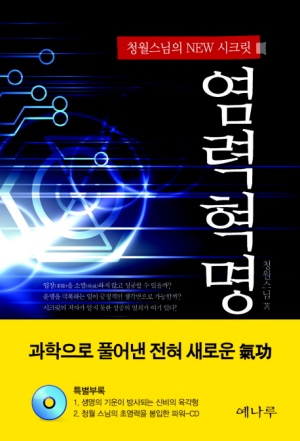
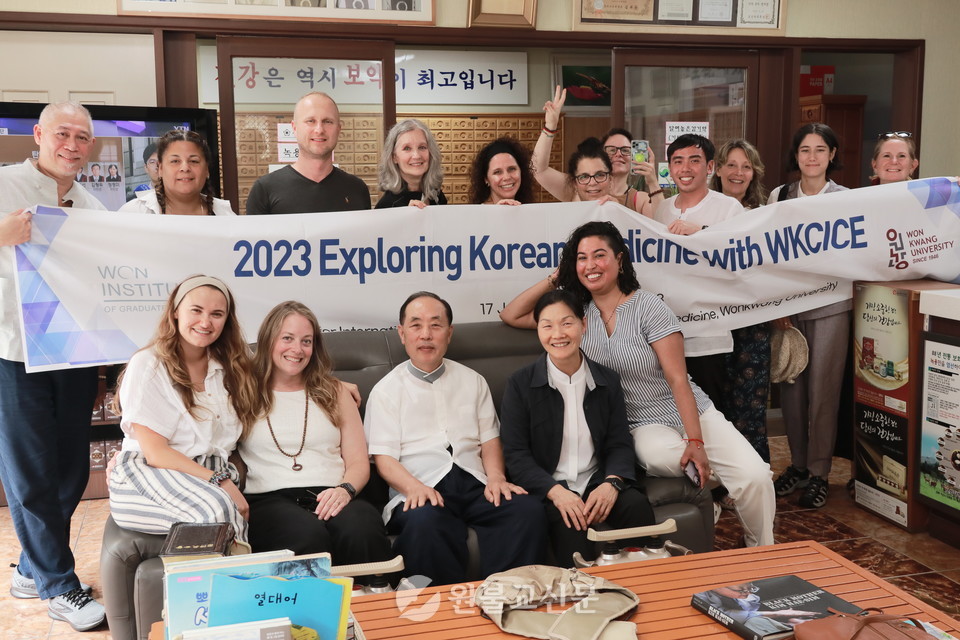
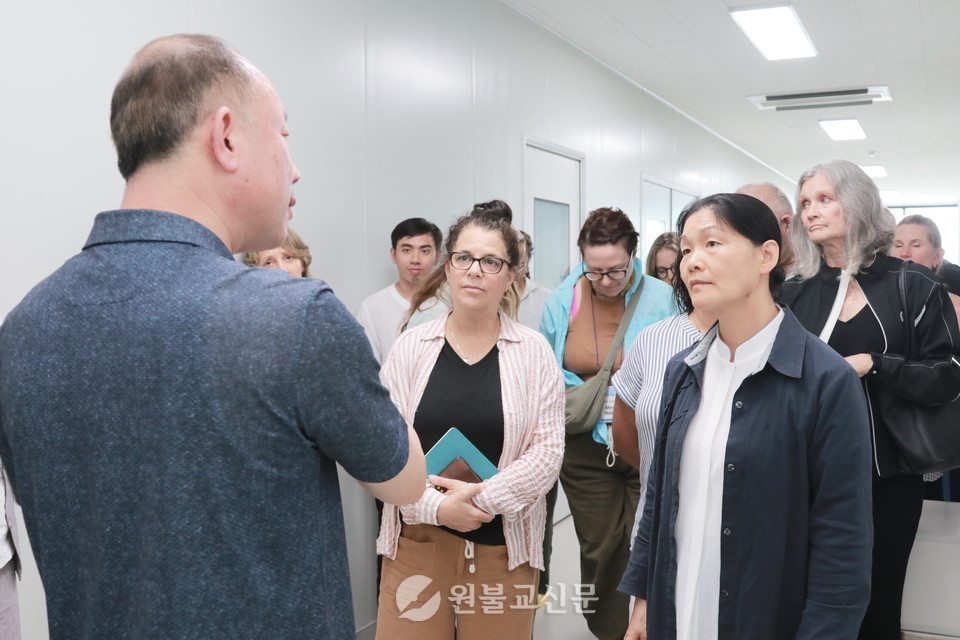
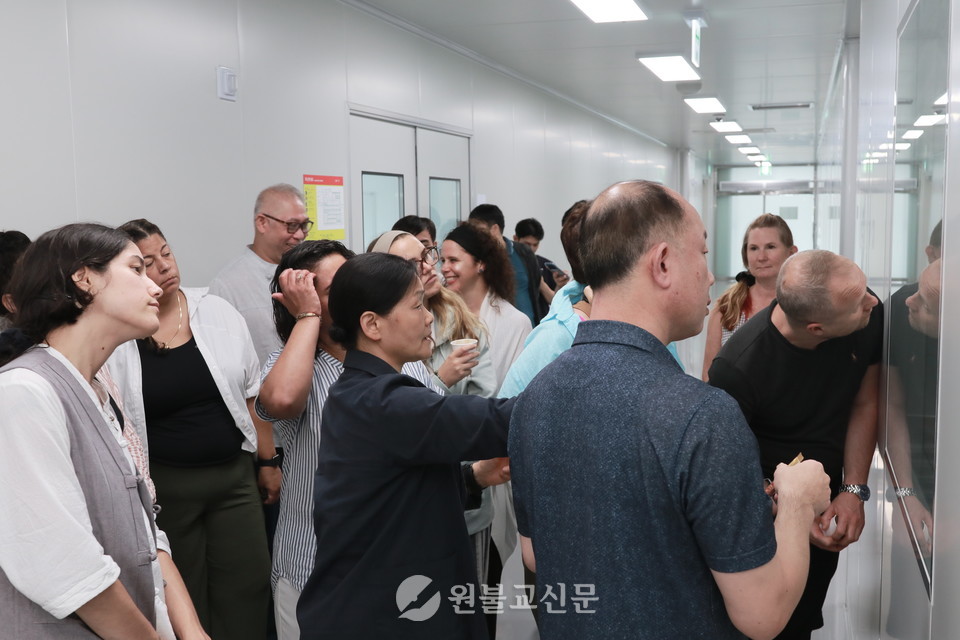

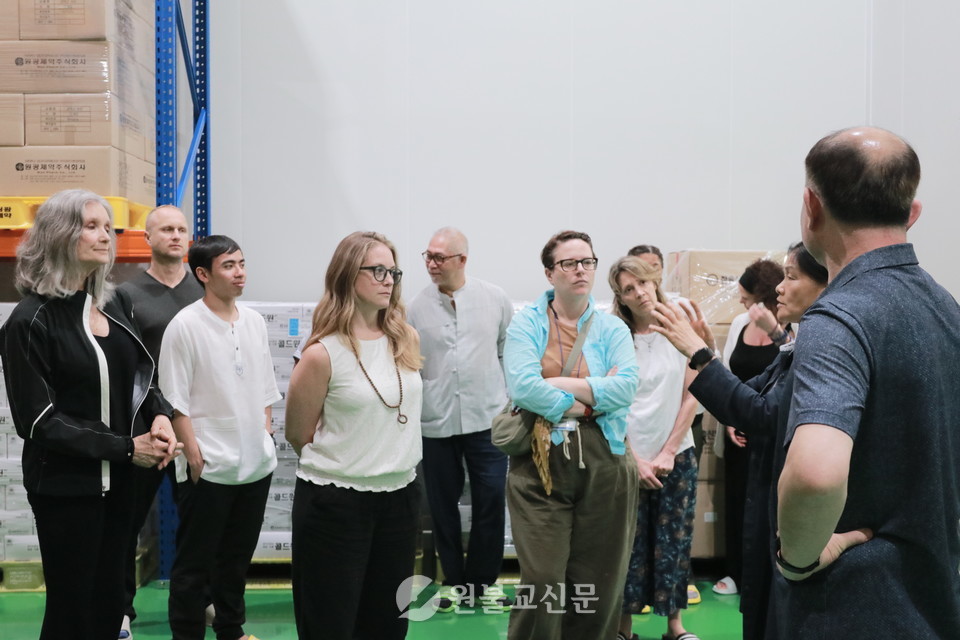

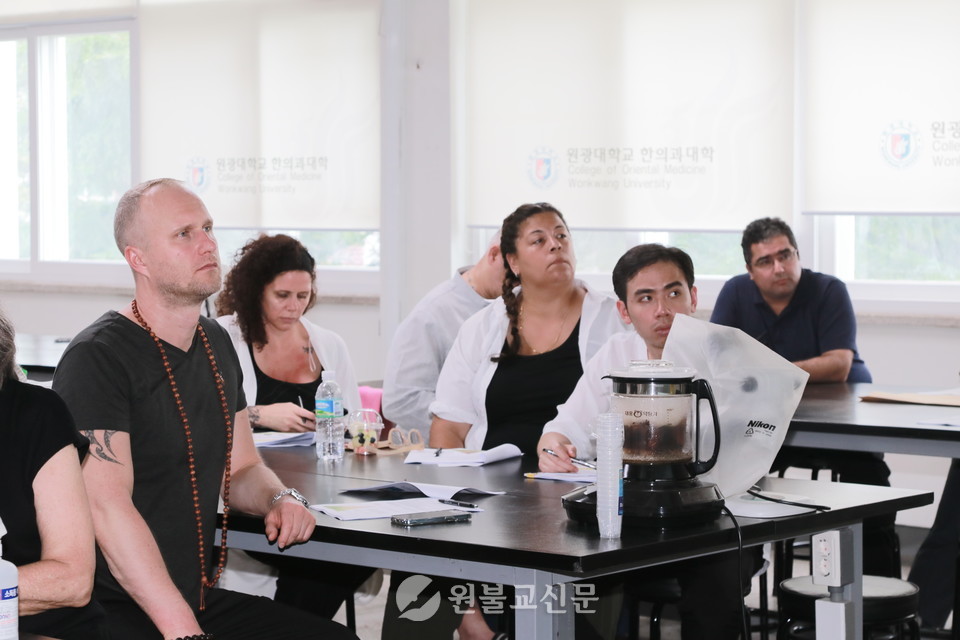
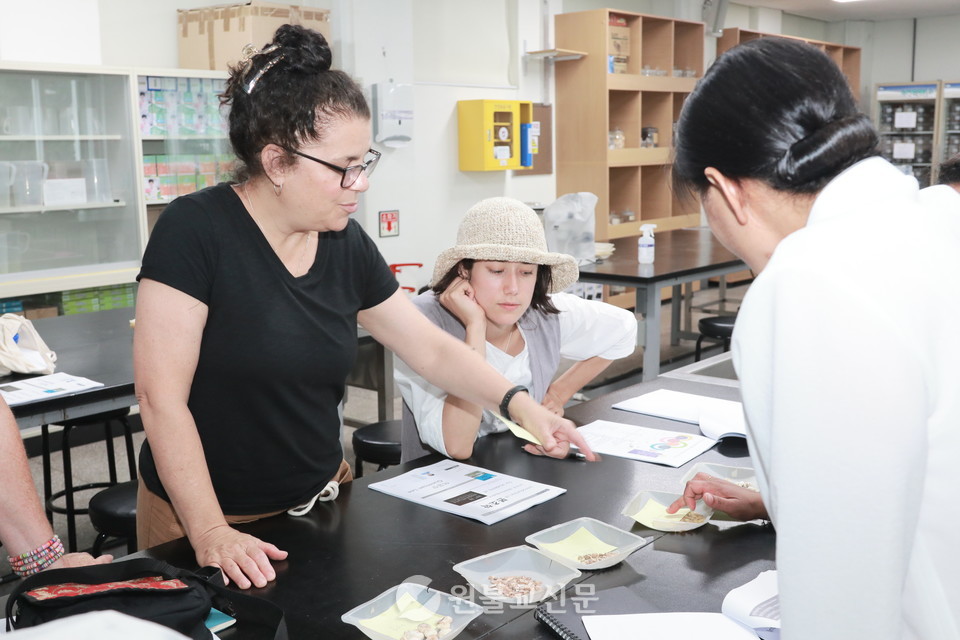
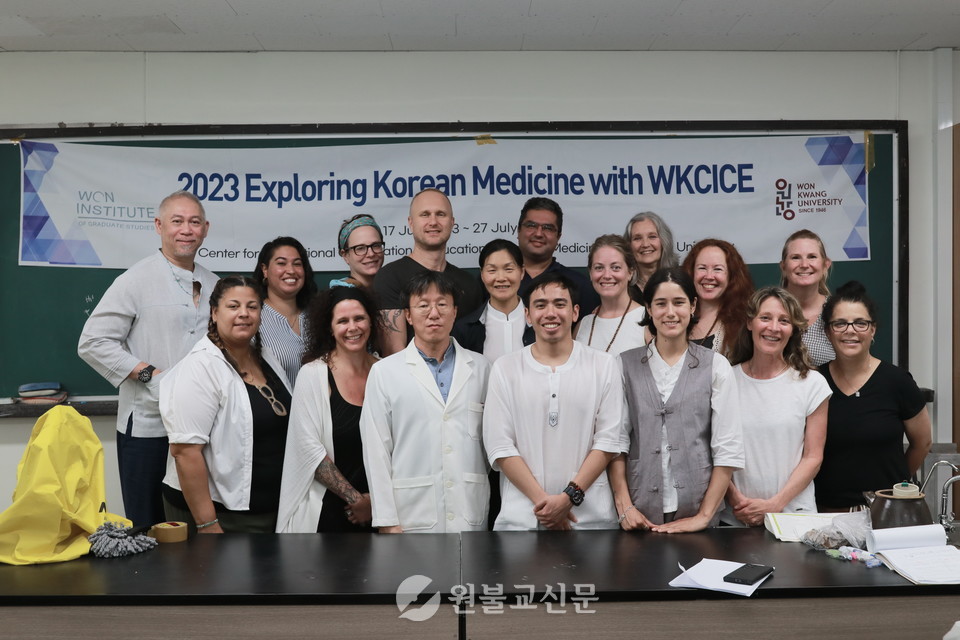
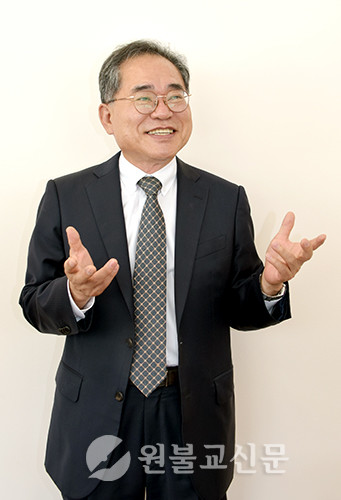 오원선 미주선학대학원대학교 신임총장
오원선 미주선학대학원대학교 신임총장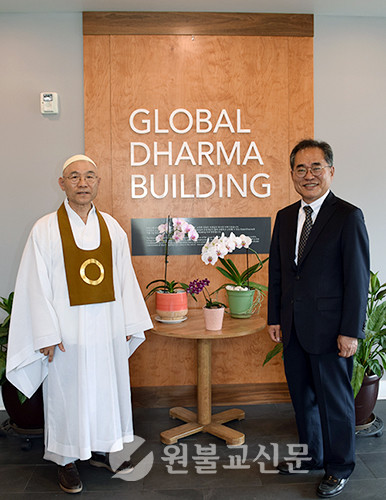 6월 26일 미주선학대학원대학교를 방문한 전산종법사와 함께.
6월 26일 미주선학대학원대학교를 방문한 전산종법사와 함께.